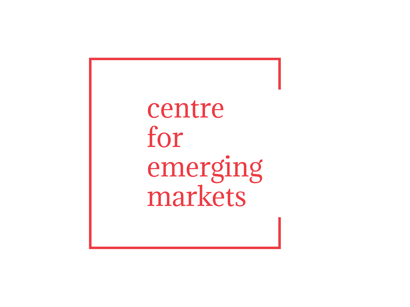Fragile Frontiers: The Future of Trade in Emerging Markets Under Geopolitical Threats
Emerging markets face significant geopolitical threats, including trade wars, political instability, and economic sanctions, disrupting trade and economic growth. This policy brief explores these challenges and recommends strategies for resilience, such as diversifying trade partners, strengthening regional cooperation, improving governance, investing in infrastructure, and leveraging technology.
By Chris Edeh
7/25/20243 min read


Emerging markets, those dynamic economies in regions like Asia, Africa, Latin America, and Eastern Europe, have long been heralded as the engines of global growth. With their burgeoning middle classes, youthful populations, and rapid industrialization, these markets hold immense potential for trade and investment. However, as the global geopolitical landscape becomes increasingly volatile, the future of trade in these emerging economies faces significant threats that could derail their progress and destabilize the broader global economy.
Trade wars, political instability, regional conflicts, and economic sanctions are just some of the geopolitical threats that emerging markets must navigate. The trade tensions between major economies such as the United States and China, for instance, create ripple effects that can destabilize markets far beyond their borders. These tensions lead to tariffs and trade barriers that disrupt supply chains, increase costs, and reduce market access for emerging economies, which are often heavily reliant on exports.
Protectionist policies in developed countries compound these challenges. As nations turn inward to shield their industries, the demand for exports from emerging markets diminishes. This demand reduction not only hampers economic growth but also threatens employment and social stability in regions already grappling with high levels of poverty and unemployment.
Political instability and conflicts within emerging markets further exacerbate these issues. Corruption, governance issues, and civil unrest create an unpredictable business environment, deterring foreign investment and disrupting trade. Regional conflicts, driven by territorial disputes or ethnic tensions, can destroy critical infrastructure, disrupt trade routes, and create an environment of uncertainty that stifles economic activity.
Economic sanctions imposed by powerful nations on countries within emerging markets add another layer of complexity. These sanctions restrict access to international financial systems, reduce export revenues, and isolate countries from the global trading system. The situation is often worsened by secondary sanctions, which target entities doing business with sanctioned countries, thus limiting trade partners and complicating trade logistics.
Global supply chains, integral to the functioning of emerging markets, are also vulnerable to geopolitical disruptions. Conflicts or political decisions in crucial transit countries can delay shipments, increase costs, and reduce the reliability of these supply chains. The COVID-19 pandemic has highlighted the fragility of global supply chains, and ongoing geopolitical tensions pose significant risks to their stability.
The multifaceted impact of these geopolitical threats on trade in emerging markets cannot be overstated. Reduced trade volumes, increased transaction costs, and decreased foreign investment directly slowed economic growth. These effects lead to higher unemployment rates and exacerbated poverty levels, while the uncertainty created by geopolitical risks results in volatile financial markets, further destabilizing emerging economies.
To navigate these treacherous waters, emerging markets must adopt comprehensive strategies to enhance their resilience. Diversification of trade partners is crucial. By expanding trade relations with multiple countries, emerging markets can reduce dependence on any single economy and mitigate the impact of trade wars and sanctions. Regional trade agreements, such as the African Continental Free Trade Area (AfCFTA), offer promising avenues for promoting intra-regional trade and providing a buffer against external shocks.
Strengthening regional cooperation and integration can also bolster resilience. By pooling resources and coordinating policies, countries can better manage geopolitical risks and maintain stable trade flows. Regional institutions must be strengthened to provide platforms for dialogue, conflict resolution, and coordinated responses to external threats.
Good governance and political stability are foundational for attracting foreign investment and maintaining trade relations. Emerging markets must prioritize anti-corruption measures, transparent policymaking, and inclusive governance to build investor confidence. Political reforms that address the root causes of instability, such as ethnic tensions and economic disparities, are essential for creating a stable environment conducive to trade and investment.
Investing in resilient infrastructure is another crucial strategy. Robust infrastructure, including ports, roads, and communication networks, can mitigate the impact of geopolitical disruptions on trade. Infrastructure development should focus on creating alternative trade routes and reducing logistical bottlenecks. Additionally, leveraging technology, such as blockchain, for supply chain management can enhance transparency and reduce the risk of disruptions. Digital platforms can facilitate trade by connecting markets and streamlining trade processes.
Enhancing trade facilitation and logistics is also critical. Streamlining customs procedures, reducing tariffs, and improving logistics can lower trade costs and enhance competitiveness. Efficient trade facilitation measures can mitigate the impact of geopolitical threats by ensuring smooth trade flows. Public-private partnerships can be crucial in improving trade infrastructure and logistics, leveraging private sector expertise and investment.
Building economic resilience through diversification beyond trade is essential. Emerging markets should develop robust domestic industries, such as manufacturing and services, to reduce their vulnerability to external shocks. Social safety nets and economic support programs can cushion the impact of trade disruptions on vulnerable populations, ensuring inclusive economic growth.
The future of trade in emerging markets is at a critical juncture. Geopolitical threats pose significant risks, but with the right strategies, these markets can navigate the complexities and secure a stable, prosperous future. Policymakers, regional institutions, and international partners must work collaboratively to address these challenges and safeguard the future of trade in emerging markets.
By promoting regional trade agreements, strengthening governance frameworks, investing in resilient infrastructure, leveraging technology for trade facilitation, and diversifying economic activities, emerging markets can build resilience against geopolitical threats and ensure sustainable development. The stakes are high, but with proactive measures and collaborative efforts, the potential for growth and prosperity in these dynamic economies remains within reach.
